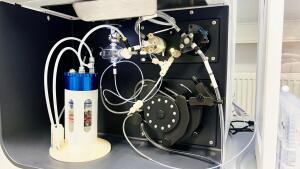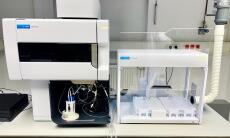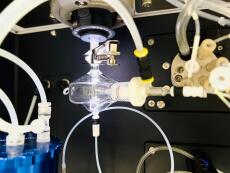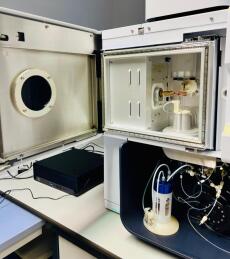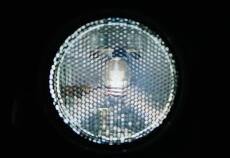ICP-OES
ICP-OES close-up view.
Image: Sarah HupferICP-OES can be applied to the determination of metals and metalloids in major, minor and trace concentrations in aqueous solutions.
Equipment
Simultaneous radial ICP-OES spectrometer 5800VDV (Agilent, Waldbronn, Germany). For feeding of liquid samples an autosampler SPS4 (Fa. Teledyne CETAC, Omaha, USA) is available. Until October 2024: Simultaneous radial ICP-OES Spectrometer 725ES (Agilent, Waldbronn) with Autosampler ASX 520 (Teledyne CETAC, Omaha, USA).
Sample preparation
Liquid samples (a volume of at least 10 mL is required, (if less volume is available please contact (link Merten) in advance) must be free of particles (filtration < 0.45μm or suitable centrifugation).
Subsequent to filtration samples must be acidified to pH<2 using HNO3. Samples must delivered with a list of electrical conductivities prior to acidification. If samples originate from extractions or the digestion of solid samples the used weight of the solid samples and the volume, concentration and kind of extracting solutions have to be delivered.
Quality assurance
Details on quality assurance in ICP-OES can be found here
